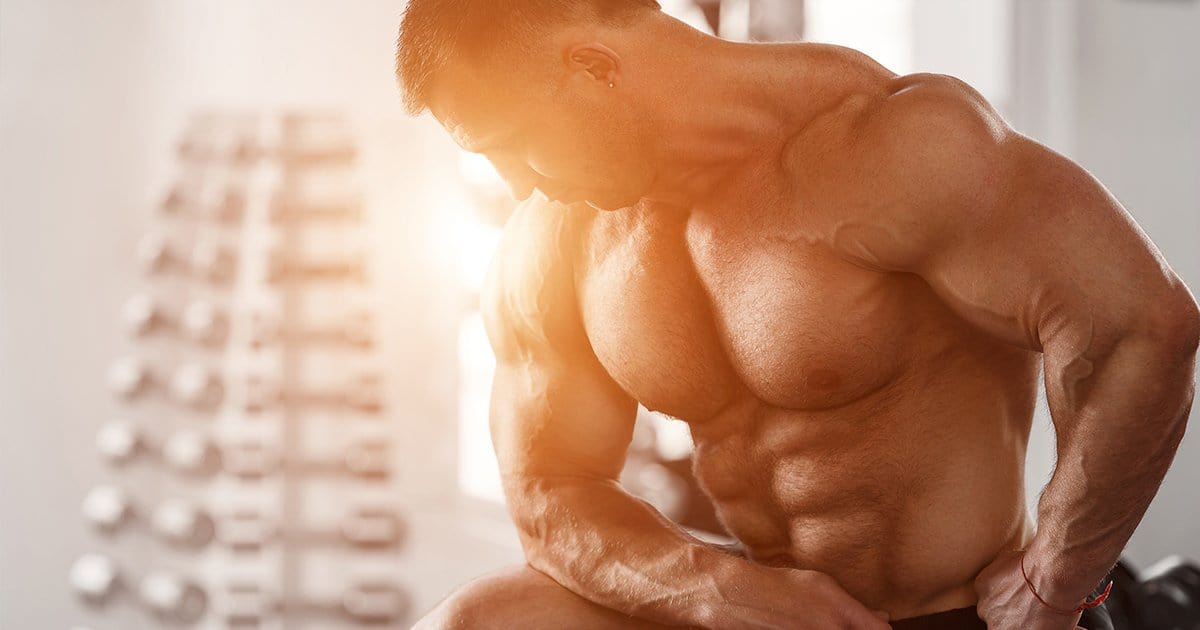Want to get more out of caffeine? Want to get more out of your workouts? Caffeine is something that the majority of all adults consume on a daily basis whether it's in coffee, tea, your pre-workout, weight loss supplement or energy drink. As a stimulant, caffeine provides a noticeable energy boost that can fight fatigue and increase your energy levels during workouts. The substance has even been shown to assist with muscle recovery post-workout to stimulate quicker muscle repair and accelerate results from fitness regimens.
Like most supplements and sports nutrition aids, though, the results that are possible from using caffeine can vary based on how and when you take it. To ensure that you're getting the most out of the form of caffeine that you prefer, follow these 5 ways to get more out of caffeine,
1. Use Caffeine Wisely
Caffeine is most well known for its ability to activate the nervous system, giving you an energy boost, but it can actually fight fatigue in another way. Research has shown that caffeine has the ability to interfere with receptors that detect chemicals in the body that are responsible for making you feel fatigued. By blocking these fatigue-causing sensors, caffeine can actually help you complete more reps during your workout regimen and to maintain the proper form during exercise and can increase endurance and lower body strength.
One study found that using 180 milligrams of caffeine about one hour before a workout allowed people to complete more back squats, bench presses, deadlifts and rows in a row. Not only did the group who used caffeine complete more reps than those who did not, but they also thought they exerted less energy and felt less tired at the end.
The problem with caffeine is that it can become less effective at interfering with fatigue receptors over time. That's why it's best not to supplement with caffeine too often. Reach for your caffeinated workout supplement on days when you are most in need of the added energy support.
Get more out of Caffeine
2. Take the Right Amount of Caffeine
Many people start off their mornings with caffeine because they believe that it helps them wake up and feel more alert and science has established that there is truth to this. Caffeine changes the balance of chemicals in the brain, diminishing levels of serotonin and dopamine that are shown to contribute to drowsiness. As a result, caffeine makes your mind and body more alert.
When you're working out, caffeine's ability to put you into a heightened state of alertness can be beneficial for your focus. Studies have found that people who use caffeine before working out are able to concentrate better on their form than those who do not, and the benefits are most pronounced in people who are not getting enough sleep. Caffeine is also clinically shown to help athletes make better decisions in the heat of the moment during competition.
While the science may tempt you to load up on caffeine before a workout or a game, it's important to understand that consuming too much of the stimulant can actually do more harm than good. Excessive amounts of caffeine can make you jittery and unable to focus. That's why most experts recommend limiting your intake to a maximum of 300 milligrams taken about 1 hour before physical exertion.
3. Use Caffeine for Soreness Relief
Delayed onset muscle soreness is a common side effect of strenuous workouts that can leave you sidelined for days. While there is no way to completely prevent this problem from occurring, there is evidence to suggest that caffeine supplementation can reduce the risk of ending up sore and achy due to exercise.
A 2013 research study examined the effects that caffeine pre-workout supplements have on the body. During the study, one half of a test group was given a caffeine supplement to take before they work out, and the other half was given a placebo. The group that received the caffeine experienced fewer incidences of delayed onset muscle soreness after intense lifting workouts than the ones that didn't.
While researchers are still trying to determine how caffeine helps to fight the painful soreness that develops due to workouts, many believe that caffeine interferes with adenosine, a chemical that has been linked to both fatigue and post-exercise soreness.
The scientific evidence indicates that using a pre-workout supplement can allow you to recover more efficiently, so you can get back in the gym sooner and see results more quickly.
4. Try Caffeine After Your Workouts
Most people think of caffeine as a pre-workout supplement due to its energizing, focus boosting benefits, but there is now some evidence to suggest that caffeine taken after an exercise offers benefits of its own.
A study found that people who consumed caffeine along with carbs after their workout were able to more quickly replenish glycogen levels in their muscles than those who only ate carbs. In fact, the ones who used caffeine had 66% more glycogen in their muscles.
As the substance is the primary fuel needed to power muscle activity during workouts, glycogen level maintenance is important for serious bodybuilders and athletes. Scientists have yet to determine what the link is between caffeine and glycogen production, but it's likely that caffeine somehow boosts insulin and glucose levels and improves the performance of enzymes needed to manufacture the substance.
What is clear is that taking a little caffeine when you're refuelling after your workout can help you have more fuel for your next workout; however, make sure that you don't take caffeine too late in the day, as it can keep you up at night.
5. Add Caffeine to Your Weight Loss Plan
If you're working out to lose body fat and build muscle, caffeine supplements can be a vital addition to your sports nutrition plan. Research has shown that caffeine accelerates the rate at which fat is broken down due to exercise. This is because the substance increases nervous system activities and boosts levels of the hormone epinephrine to accelerate the metabolism. That's why so many fat burner supplements contain caffeine or ingredients that are natural sources of stimulant-like green tea.
There is one important thing to remember about caffeine for weight loss though--it's not a miracle worker. Popping a caffeine-rich fat burner and then eating whatever you want and skipping the gym won't help you lose weight. Fat burner supplements should be combined with a sensible eating plan and regular workout routine. Studies have found that when incorporated into an effective weight loss program, caffeine can increase fat burning to help you burn an extra 200 to 300 calories per day. This can add up to an extra pound of fat being burned roughly every 12 to 18 days.
 |
 |
Getting Best Results
As previously stated, taking too much caffeine can be harmful. Most experts suggest that people consume no more than 1 to 2 milligrams of caffeine for each pound that they weigh and that no one should consume more than 400 milligrams of the substance daily. Everyone responds to caffeine differently, so it's important to be aware of side effects from caffeine, which include:
- Jitteriness
- Stomach ache
- Anxiety
- Nausea
- Insomnia
If you experience these symptoms, cut back on your use of caffeine until you're able to find the right dose to suit your needs.
Be sure to follow the five steps above to get more out of caffeine. If you're looking for a pre-workout or weight loss supplement that contains caffeine, Sportsfuel can help you find the best product for your needs. We carry a huge selection of supplements that provide caffeine or caffeine-rich ingredients and will be glad to help you select the one that is the right fit for your specific fitness and health goals. Contact us Now!




